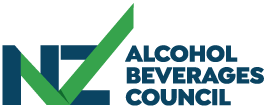Opinion – NZ Herald
With the festive season upon us and the celebrations that come with it, the announcement of a review of the Sale and Supply of Alcohol Act, by Justice Minister Kiritapu Allan, is timely.
The NZ Alcohol Beverages Council (NZABC) supports a review of the legislation. The Act is a decade old, and since it was passed New Zealanders’ attitudes to drinking have changed. We are more aware of the potentially harmful consequences of hazardous drinking, and more research has been conducted into its effects. It is appropriate that we revisit the key legislation underpinning beer, wine and spirits’ sale and supply to see how it can better serve all New Zealanders.
But it is important that significant changes to legislation and the regulatory framework around alcohol sale and promotion are informed by data, not emotion. Research relating to alcohol consumption both in New Zealand and internationally has been released in the last few weeks. It is worth considering what it reveals.
Last month the New Zealand annual Health Survey released the findings of its 2021/22assessment of New Zealanders’ health and wellbeing. This survey tells us that 81% of New Zealand adults – four out of five of us – are drinking alcohol responsibly. New Zealanders are also drinking 25% less now than we did in the late 1970s. Fewer under- 18s are drinking alcohol and those who do are drinking less hazardously. We are seeing more Kiwis sip and savour their drink, and we’re also drinking more no- and low-alcohol beer, wine and spirits. The trends indicate that New Zealanders’ consumption of alcohol overall is dropping,
particularly for people under 35.
This is all encouraging news. But the survey also reveals that nearly 19% of New Zealanders– or 780,000 of us – are hazardous drinkers. And while that figure is an improvement on five years ago (2.1% less, to be exact), all New Zealanders would agree that’s still too many.
The upcoming legislative review is aimed at reducing harm from alcohol by imposing more regulation on its sale. But given New Zealanders overall are adopting a healthier approach to drinking alcohol beverages, the question to ask is: will tightening regulation of alcohol nationwide lead to a reduction in hazardous drinking amongst those who are still doing so?
Some recently published, peer-reviewed international research suggests the answer to this question might be “no”.
The research, spear-headed by Christopher Snowdon from the Institute of Economic Affairs, London, found that since 2020, in many countries where consumption of alcohol across the entire population has been decreasing, alcohol-attributed mortality has actually increased.
Such research, which indicates that reduced alcohol consumption across an entire population does not reduce hazardous drinking, at the very least suggests the solution to reducing alcohol harm may not be a blunt instrument such as legislation.
Indeed, the research concludes that the reduction of harmful drinking patterns may be best done through targeted initiatives aimed at clearly identified groups.
In New Zealand who might these groups be?
The annual Health Survey found that hazardous drinking among Māori (33.2%) is much higher than the whole-of-population hazardous drinking rate – and hasn’t improved in the last five years.
Harm to Māori is provided as a reason for greater regulation, but extrapolating from the Snowdon research cited above and incorporating learnings from recent, targeted public health initiatives such as population-specific vaccination drives, shouldn’t we be considering a targeted approach for Māori?
New Zealand’s annual Health Survey also found that people in the least socioeconomically deprived areas were more likely to be hazardous drinkers than those living in more deprived areas. Greater financial means, this suggests, make hazardous consumption of alcohol more likely. How will increased regulation reduce this harm?
There is no doubt that the majority of us drink responsibly, but some of us do not. The causes of hazardous drinking are complex, and the solutions need to be fit for purpose. Robust, responsive laws are needed to help create a healthy drinking culture, but they need to be targeted, and supported by targeted, non-regulatory programmes so they are effective where they are needed.
The Tomorrow Project, a social change charity governed by Spirits NZ, NZ Winegrowers and the Brewers Association, is playing its part, including funding the Life Education Trust to educate 12 and 13-year-olds about safety around alcohol and the risks alcohol presents to developing brains. We are keen to be part of the solution.
This festive season, let’s keep the positive trend going. Review your personal drinking habits as well as putting in place host responsibility measures for guests. Provide food along with a variety of beverages which may include beer, wine and spirits along with low and no-alcohol options. Don’t serve alcoholic beverages to anyone who is becoming intoxicated. And make sure your friends and family get home safely.
Virginia Nicholls is the executive director of the NZ Alcohol Beverages Council
